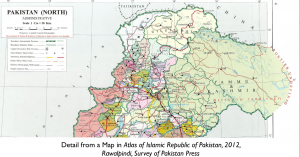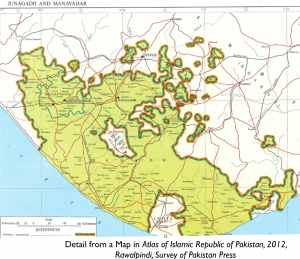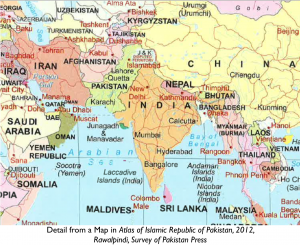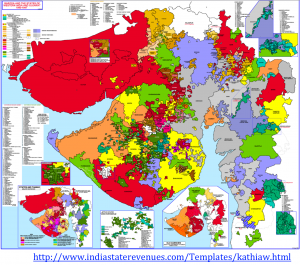INDIC
BANNED

- Joined
- Jun 7, 2012
- Messages
- 18,512
- Reaction score
- -12
- Country
- Location
Follow along with the video below to see how to install our site as a web app on your home screen.
Note: This feature may not be available in some browsers.


People even forgot about the Muslim majority and Arabic / Urdu speaking Andaman - Nicobar.

The fate of India's NE peoples and the situation of the eastern wing of Pakistan and now BD, would have been far favorable/comfortable.

And those people dwell in medieval age.


Looking at Bangladesh and Pakistan today, all of us thank our stars day and night that we're Indians.



 The new edition (2012) of the Atlas of Islamic Republic of Pakistan is an interesting source to examine the Pakistani position on this issue. The atlas has official status; its copyright is marked as “Government of Pakistan,” it was printed by the Survey of Pakistan, and it was published under the direction of Surveyor-General of Pakistan. Not surprisingly, its maps portray Kashmir as part of Pakistan, but they do mark most of this area as “Disputed Territory,” further specifying that its eastern border with China remains “undefined.” The Atlas does, however, oddly exclude Gilgit from the disputed zone. It also never marks the actual line of control that separates Indian-administered from Pakistani-administered territory.
The new edition (2012) of the Atlas of Islamic Republic of Pakistan is an interesting source to examine the Pakistani position on this issue. The atlas has official status; its copyright is marked as “Government of Pakistan,” it was printed by the Survey of Pakistan, and it was published under the direction of Surveyor-General of Pakistan. Not surprisingly, its maps portray Kashmir as part of Pakistan, but they do mark most of this area as “Disputed Territory,” further specifying that its eastern border with China remains “undefined.” The Atlas does, however, oddly exclude Gilgit from the disputed zone. It also never marks the actual line of control that separates Indian-administered from Pakistani-administered territory. The truly peculiar feature of the atlas, however, is not its portrayal of Kashmir, but rather that of the Indian state of Gujarat. All maps of Pakistan in the atlas depict a sizable section of western Gujarat as an integral, non-disputed part of Pakistan, whereas its world political map seemingly classifies this same region as if it were an independent country. The area in question is the former princely state of Junagadh. In the imagination of the cartographer, “Junagadh and Manavadar” retains its former complex territory, with numerous exclaves and enclaves, that in actuality vanished shortly after the end of British India. Such fractionated territoriality reflects its heritage as an autonomous statelet that had been under the suzerainty of the British Raj during colonial time. After partition, Junagadh became part of the Republic of India, but evidently that incorporation is still viewed as illegitimate in some
The truly peculiar feature of the atlas, however, is not its portrayal of Kashmir, but rather that of the Indian state of Gujarat. All maps of Pakistan in the atlas depict a sizable section of western Gujarat as an integral, non-disputed part of Pakistan, whereas its world political map seemingly classifies this same region as if it were an independent country. The area in question is the former princely state of Junagadh. In the imagination of the cartographer, “Junagadh and Manavadar” retains its former complex territory, with numerous exclaves and enclaves, that in actuality vanished shortly after the end of British India. Such fractionated territoriality reflects its heritage as an autonomous statelet that had been under the suzerainty of the British Raj during colonial time. After partition, Junagadh became part of the Republic of India, but evidently that incorporation is still viewed as illegitimate in some Pakistani governmental circles. The map in question also portrays the city of Diu as remaining under Portuguese control, whereas in actuality it was annexed by India in 1961.
Pakistani governmental circles. The map in question also portrays the city of Diu as remaining under Portuguese control, whereas in actuality it was annexed by India in 1961. Another complicating factor was the extraordinarily complex and essentially feudal nature of the political geography of India’s princely states, especially those in Gujarat (see http://www.indiastaterevenues.com/Templates/kathiaw.html for a superb map, reproduced here at a reduced scale). Manavadar, for example, formed a separate territory under the vassalage Junagadh, which in turn was something of a vassal of the much more populous state of Baroda, which had been ruled by a Hindu Maharaja. According to some sources, such subordination meant that their rulers had no right to choose between India and Pakistan. As outlined in a different Wikipedia article:
Another complicating factor was the extraordinarily complex and essentially feudal nature of the political geography of India’s princely states, especially those in Gujarat (see http://www.indiastaterevenues.com/Templates/kathiaw.html for a superb map, reproduced here at a reduced scale). Manavadar, for example, formed a separate territory under the vassalage Junagadh, which in turn was something of a vassal of the much more populous state of Baroda, which had been ruled by a Hindu Maharaja. According to some sources, such subordination meant that their rulers had no right to choose between India and Pakistan. As outlined in a different Wikipedia article:
Or maybe Pakistan given it up because of its population and that was nice thing Pakistan did. However I'm unable to understand the hypocrites of India: when it comes Junagardh they would say accession of Junagardh to Pakistan would create communal violence and unrest, would attack the state and merge it with themselves. However, when it comes Kashmir - the same situation - but instead of Hindus they are Muslims of who want to join Pakistan, those Indian B*tches would say it is integral part of India and they're willing to kill every Muslim who want to join Pakistan by labeling them terrorist.Pakistan gave up on Junagadh because of its size

No bro you got it wrong ,we have opened our gates open for those who want to leave,Pakistan dsnt want to take themOr maybe Pakistan given it up because of its population and that was nice thing Pakistan did. However I'm unable to understand the hypocrites of India: when it comes Junagardh they would say accession of Junagardh to Pakistan would create communal violence and unrest, would attack the state and merge it with themselves. However, when it comes Kashmir - the same situation - but instead of Hindus they are Muslims of who want to join Pakistan, those Indian B*tches would say it is integral part of India and they're willing to kill every Muslim who want to join Pakistan by labeling them terrorist.

Are you just another hypocrite? What Pakistan doesn't want to take? We're talking about Kashmir here - do you have guts to see your ugly face on that?No bro you got it wrong ,we have opened our gates open for those who want to leave,Pakistan dsnt want to take them
Or maybe Pakistan given it up because of its population and that was nice thing Pakistan did. However I'm unable to understand the hypocrites of India: when it comes Junagardh they would say accession of Junagardh to Pakistan would create communal violence and unrest, would attack the state and merge it with themselves. However, when it comes Kashmir - the same situation - but instead of Hindus they are Muslims of who want to join Pakistan, those Indian B*tches would say it is integral part of India and they're willing to kill every Muslim who want to join Pakistan by labeling them terrorist.

Pakistan gave it up because of their Hindu majority - If you've seen the map, these areas are like adjacent to Pakistan as compared to its (so called) east wing. It was right thing to do and I'm glad Pakistan did that.Pakistan gave up on Junagadh and Hyderabad because of geographical proximity (or lack of)
